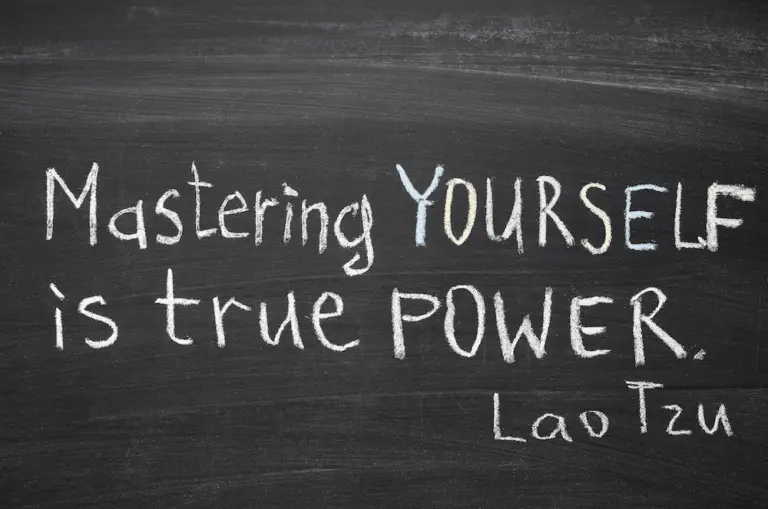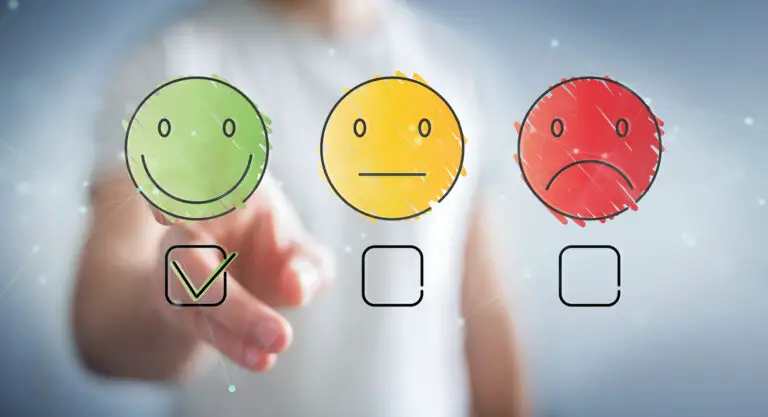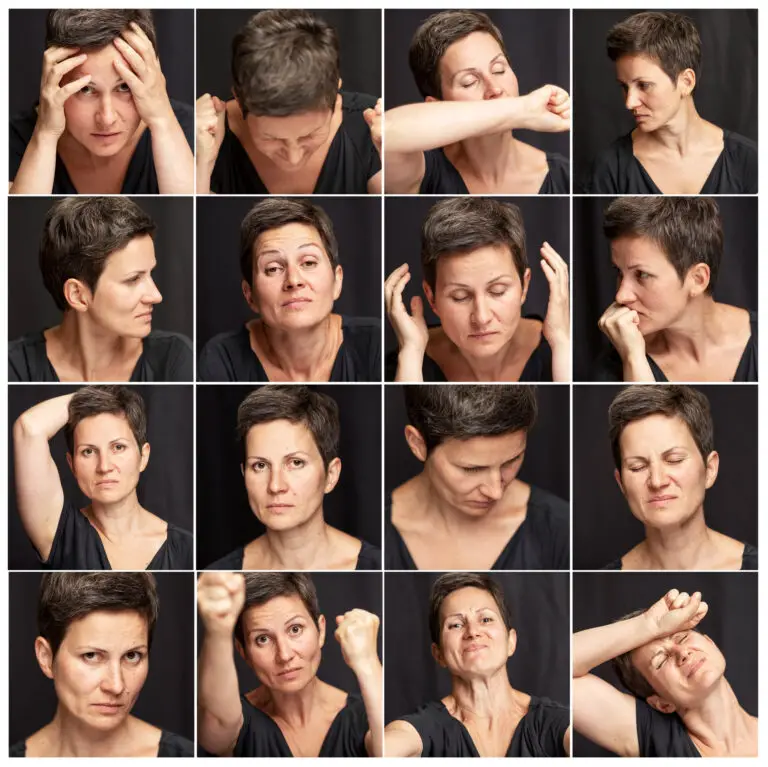Emotional Health And Self Esteem

It is motivation that directs and energizes human behavior, while emotions give the sentimental part to motivation. Emotion is the multifaceted psychophysiological experience of a person’s state of mind as inter-relating with biochemical (or internal influences) or environmental (or external influences). Although there is no definite taxonomy of human emotion, many classifications have been proposed theoretically. Some can be categorized as:
- Cognitive vs. non-cognitive emotions
- Instinctual emotions vs. cognitive emotions
- Based on duration (some emotions appear so instantly, in seconds, ex. being surprised; other emotions can last years, ex. love)
An emotion is relatively distinguished from its results, primarily behaviours and emotional expressions. Most often, people behave in a way as the result of their state of emotion e.g. fighting, fleeing, and crying. If a person can emote without a corresponding behavior, it is then considered that the behavior is not of any importance with the human emotions. Apparently, emotion is a controversial issue in psychology, the root of intense discussion, debate and disagreement from the Philosophers of long ago and great thinkers of the present time.
However, many Psychologists agree on one definition of emotion that involves its components. It is the enumeration of the parts of human emotions and the phenomenon behind each. The components of emotions are differentiated on the basis of psychological and physiological factors and can somehow include emotion elicitors, emotion neural processes and emotion faces.
We use to experience sort of happiness when we receive good news, a salary raise or upon hearing a joke. We got surprised when we bumped somebody somewhere in our past. We fear when we see horror movies, disgust when we cannot find something. In fact, emotions help us in coping with our everyday life. It allows us to relate what we feel on certain situations, things, people, thoughts, dreams, memories, and including senses. As per Psychologists, there are six (6) basic kinds of emotions:
- Happiness – this is the way how people react to positive and good things
- Anger – this is how people react to aversion
- Fear – a common reaction from danger
- Sadness – this emotion is felt because of loss or having difficulty
- Disgust – sort of revolting emotions
- Surprise- it is how we react to the unexpected
There are varieties of emotions arising from the basic ones mentioned like grief and depression for the variety of sadness. Pleasure is a variety for happiness, horror is for fear, thrilled is for surprise, etc. Actually, secondary human emotions arise out of the extent of basic emotions or a combination of two or more (e.g. disgust and anger produce contempt, sadness and surprise produce disappointments. However, multiple emotions can also produce a single emotion (e.g. love, anger and fear can produce the emotions of jealousy ).
We can therefore state that every emotion can be characterized by behavioral and physiological qualities and that may include posture, movements, facial expressions, voice and even fluctuating pulse rate. The feeling of fear is portrayed with tightening and trembling of muscles, whereas the emotion of sadness relaxes the limbs but tightens the throat. Surprise is interestingly a different feeling that can naturally show a dropped jaw or gaping eyes which can only last for seconds, followed by some other type of emotion.
Feelings and Emotions
We all know that feelings and emotions are not the same. If you are remembering something like a summer vacation that you enjoyed. These memories provoke some sense of peacefulness within you. The reaction then would be: “I am peaceful”.
On the other hand, if you are remembering something terrible that happened to you, these memories might provoke some feelings of agitation within you. The reaction would be: “I am angry”.
Positive feelings will make you feel right, expanded, your heart open. When you experience negative feelings you feel sorry. You lack vitality and energy.
Our feelings and emotions aren’t good or bad. If you have a healthy self esteem you will use your emotions in a positive way. This is emotional intelligence. Let’s say you feel anger, instead of deny it or use this anger to get revenge, you can use it to reach a goal.
To have a healthy self esteem you need to have a positive but real self-evaluation so you can take care of yourself and know what you need.
If you deny feelings and emotions it will be hard to take care of yourself. You cannot either deny nor avoid them. But you can always find a way to understand and transform or release them .
Some mechanisms that keep us out of touch with some emotions according to John Bradshaw.
- Denial and Fantasy Bonding: In the face of threat, people deny what is going on, or they deny the hurt of what is going on or the impact on their lives. They act like nothing happened. For example: there is nothing wrong with me. Fantasy bonding is an illusory connection to another person to establish in their intimate associations, a process that leads to deterioration in the relationship. Is the use of imagination to relieve pain . Is to make an illusion of closeness, that allows to maintain a certain emotional distance while reducing loneliness.
- Numbing out: You don’t feel any emotions. It has to do with tensing muscles, changing breathing patterns’s and fantasizing abandonment. Is learning to avoid the avoidance to prevent the pain or heal the grief..
- Dissociation: Is a form of instant numbing. It involves denial and regression but includes substantial elements of distracting imagination.
- Des personalization: Is the lost of awareness of inner experience. We experience ourselves as an object. Is the sense of being detached from our body.
We are usually not aware of this internal mechanism because we are protecting ourselves from the pain. The best way to understand our emotions and feelings is through awareness. Living in denial will lead you to behaviors that do not support you and you will be stuck in a vicious circle.
The first step is to recognize what you feel . say for example : ” I am angry. “. Deal with the problem by taking responsibility . Accept responsibility without blaming anyone . It is also really important to know the real cause . Think about the real reasons . What I feel and why? . Sometimes is not about a present event, it could be possible that the event triggers an unresolved wound from the past. Once you have gone through this steps use any technique to release your emotion.
Depression, Anxiety, and Insomnia
Emotional problems can significantly impact a person’s life. A person that is emotionally disturbed may encounter difficulties in learning and establishing relationships with others. They may also exhibit inappropriate behaviors, unwarranted fears, and are unhappy most of the time.
Specific causes of emotional problems are not yet determined but there are methods used to determine a treat a person with emotional disturbance. They can be transient but it can also last for a long time. The key to emotional recovery is to be diagnosed and be treated as early as possible. This article will help you learn more about the three main emotional issues that we face today: depression, anxiety, and insomnia.
- Depression. All of us have been depressed sometime. A death of a loved one, a broken relationship, and failure are some of the things that can cause us to be depressed. Normally, the feeling of loss and sadness will subside as time goes by. That is not the case with people who are suffering from extreme cases of depression.People with clinical depression have intense feelings of sadness and they wallow in it for long periods of time. Aside from being sad, they are also tired all the time. They gradually lose interest in everything and they do not feel happy with what they used to enjoy before. Their sleeping and eating habits change and they experience difficulty in concentrating. Depressed people feel unworthy and have recurrent thoughts of death..
- Anxiety. Like depression, anxiety is a healthy aspect of our lives. Anxiety even helps us prepare ourselves during trying times by giving us more energy and making us more alert. However, anxiety becomes an illness when a person is always anxious even when the situation would not usually induce anxiety.Some of the symptoms of anxiety disorder are: excessive fear and worrying, inability to regain their composure even in normal circumstances, always sweating and have cold clammy hands, jumpy, difficulty in swallowing, and may experience diarrhea and nausea.
- Insomnia. Insomnia is characterized by a person’s inability to get enough sleep. Insomnia can be caused by different factors such as noisy environment, uncomfortable temperature, change in sleeping environment, physical pain or illness, and stress. Depression and anxiety can also cause depression but it can also occur alone.Symptoms of insomnia include difficulty in getting refreshing sleep, disturbance of sleep during the night and difficulty returning to sleep, and waking up way too early. These symptoms can cause lack of energy during the day, inability to concentrate, poor body coordination, and irritability. .
Conclusion
Depression, anxiety, and insomnia are emotional problems that can be treated and avoided altogether. The common thing about people with these problems is the lack of individuals who are willing to listen to them and find out what is causing the problem.
Emotional support from the people that are closest to you is essential. Be sensitive to the people around you and try to listen to them from time to time.






